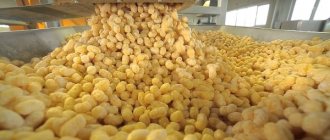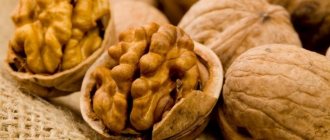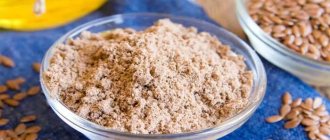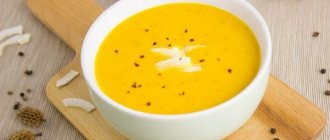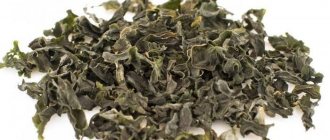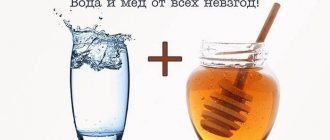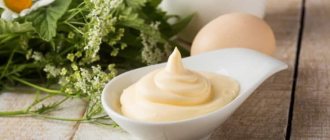Varieties
Dried apricots are obtained by drying apricot halves in the sun or in special electric dryers. Depending on the variety, size of the fruit and drying method, the process of obtaining a tasty and nutritious product takes from 6 to 14 days.
During the production process, dried apricots do not lose their valuable qualities. On the contrary, the amount of minerals in dried fruits is slightly higher compared to fresh fruits. All types of dried apricot fruits have similar characteristics, and their main difference lies only in the method of preparation:
- dried apricots - individual halves of apricot, dried without pits;
- apricot – small-fruited varieties, dried whole without removing the pit;
- kaisa – large whole apricot fruits from which the seeds have been removed before drying.
Apricots are used mainly for making compotes; kaisa has a higher price. But dried apricots pleasantly combine an appetizing appearance, an affordable price and beneficial properties.
Dietary properties of dried apricots:
Do you love dried apricots? Do you know how many calories are in this sweet treat? Dried apricots, the calorie content of which will be the topic of our article today, is one of the many types of dried fruits. Strictly speaking, dried apricots are dried apricots from which the pits have been removed.
Most of us are confident that everything sweet has calories. But is it? Should those of us who are dieting or just watching the nutritional value of our food completely give up our favorite sweets? Well, let’s figure it out: what calorie content does dried apricot have, what are the benefits of dried apricots and what dietary properties does it have?
The main value of dried apricots for the human body is that during the drying process most of its mineral components are preserved.
Dried apricots do not have a high content of vitamins, but their mineral composition, which, among other things, includes potassium, magnesium, calcium, iron and phosphorus, exceeds that of fresh apricots.
Dried apricots are a good source of vitamin B5, organic acids and pectins, which help cleanse the human body of heavy metals and radionuclides. The sweet taste of dried apricots is due to the abundant content of glucose, sucrose and fructose. Their total share may even exceed 80 percent.
Dried apricots are recommended to be included in the diet of people suffering from anemia, with impaired vision, heart disease and for general health promotion. This dried fruit will be useful in blocking blood vessels and softening hard tumors. Dried apricots have a rejuvenating effect on the skin and improve hair health. Plant fibers from the sweet delicacy help cleanse the intestines. Another important role that dried apricots can play is a means to strengthen the heart and increase hemoglobin. This is not to mention the fact that dried apricots are widely used in cooking; they are included in various dishes, often in desserts.
The dietary properties of this dried fruit make it an excellent dietary product for obesity. Nutritionists advise from time to time to arrange fasting days on dried apricots.
Vitamin and mineral composition and nutritional value
When drying fresh fruits, the mass of the final product decreases by 3-4 times. But all the valuable substances remain inside the dried pulp:
- vitamins: A, B₁, B₂, B₅, C, PP;
- minerals: iron, iodine, potassium, calcium, magnesium, sodium, phosphorus;
- organic acids;
- carotene;
- pectins;
- natural sugars: glucose, sucrose, fructose.
The nutritional value of dried apricots is presented in the table:
| Nutrients | Contents per 100 g of product |
| Squirrels | 3,4-5,2 |
| Fats | 0,3-0,5 |
| Carbohydrates | 51-62 |
| Water | 20-30 |
| Cellulose | 7-11 |
The BJU ratio given in the table varies depending on the method of production of dried fruits and the variety of apricots used for drying.
The calorie content of dried apricots is 215-232 kcal per 100 g of product. This figure is one of the lowest compared to other popular dried fruits. The average weight of one dried half is 5-8 g, so 1 piece contains about 11-18 kcal.
The small amount of calories contained in dried apricots allows you to use it when losing weight: for snacks between main meals, as a dessert for tea or coffee, for fasting days or a short-term mono-diet.
Benefits, harms, calorie content of dried apricots per 100 grams, 1 piece
The calorie content of dried apricots per 100 grams is 214 kcal. 100 g of dried fruit contains:
- 5.1 g protein;
- 0.32 g fat;
- 50.9 g carbohydrates.
The product has a rich composition of vitamins and minerals. Dried apricots contain potassium, magnesium, calcium, sodium, iron, phosphorus, vitamins A, C, B1, B2, PP. In terms of potassium content, dried apricots are the leader among all products. That is why dried fruits are an indispensable component of the diet for diseases of the heart, blood vessels, and after strokes.
Calorie content of dried apricots in 1 piece
The number of calories in one dried apricot depends on the weight of the dried fruit. The average weight of dried apricots is 5 – 8 grams. Thus, the calorie content of dried apricots in 1 piece. approximately equal to 10.7 - 17.2 kcal.
Calorie content of dried apricots for weight loss
Due to its high calorie content, dried apricots should be used in very limited quantities when losing weight. Overeating dried fruits will cause the body to become saturated with fructose and glucose, which contribute to the set of extra pounds.
Interesting: Calorie content of boiled potatoes per 100 grams
The main reason why you should not completely exclude dried apricots from your diet is the absence of fast carbohydrates in its composition, which are converted into fat cells.
Using dried apricots as a substitute for store-bought sugar is the best option. The product's dietary fiber quenches your appetite for several hours, which allows you to follow your diet without interruptions.
As already mentioned, dried apricots are rich in potassium, the need for which especially increases when losing weight. Potassium regulates the water-salt balance of the body and helps prevent swelling.
Calorie content of dried apricot compote
The calorie content of dried apricot compote per 100 grams is 40 kcal. 100 g of product contains 0.6 g of protein, 0 g of fat, 9.7 g of carbohydrates.
To prepare compote you will need 250 g of dried apricots, 100 g of sugar, 2 liters of water, a fifth of a teaspoon of citric acid.
Drink preparation steps:
- dried apricots are thoroughly washed in warm water;
- dried fruits are poured into a pan with cold water;
- heat the pan to a boil over low heat;
- after boiling, sugar is added to the water with dried apricots, cooking continues over low heat for another 5 minutes;
- pour citric acid into the heated compote and mix everything;
- compote is infused for 6.5 hours.
Calorie content of dried apricots in chocolate
The calorie content of dried apricots in chocolate per 100 grams is 393 kcal. 100 g of sweets contains 3.5 g of protein, 14.2 g of fat, 62.7 g of carbohydrates.
The average weight of one dried apricot in chocolate is 33 grams. Thus, the calorie content of dried apricots in chocolate is 1 piece. 130 kcal. One piece of product contains 1.2 g of protein, 4.7 g of fat, 20.7 g of carbohydrates.
The benefits of dried apricots
The benefits of dried apricots are very great and are as follows:
- dried fruits help normalize the functioning of the stomach and intestines and are an effective natural remedy for constipation;
- The ability of dried apricots to cleanse the body of waste and toxins has long been known;
- when eating dried apricots with honey, it has a beneficial effect on the immune system;
- regular consumption of dried apricots prevents anemia, improves vision, cleanses the blood vessels of the circulatory system, improves the condition of hair and nails;
- doctors recommend dried apricots for the treatment of hypertension;
- decoctions of dried fruits have a pronounced diuretic effect and are indicated for many kidney diseases;
- Dried apricots can be found in homeopathic remedies for the treatment of thyroid diseases.
Harm of dried apricots
Harm from dried apricots occurs infrequently and is associated primarily with the consumption of dried fruits in uncontrolled quantities. Dried apricots should be avoided if:
- exacerbations of intestinal and gastric ulcers;
- development of diabetes mellitus;
- tendency to hyperglycemia (the product contains large quantities of fructose and glucose).
Dried apricots are not recommended for obesity or allergic reactions to dried fruits. Allergies can manifest as redness and rashes on the skin.
Interesting: Calorie content of oatmeal with milk per 100 grams
Keep in mind that for an attractive appearance, dried apricots can be treated with anhydride. This chemical makes dried fruits look bright, clean, and rich, but if ingested, it can cause serious health problems, including asthma and food poisoning.
SUBSCRIBE TO SITE UPDATES
Source: https://horoshieprivychki.ru/kalorijnost/kalorijnost-kuragi
Health benefits of dried apricots
Due to the content of a large amount of vitamins and minerals, dried apricots have a beneficial effect on health:
- regulates blood pressure;
- improves the functioning of the heart muscle;
- increases the level of hemoglobin in the blood and prevents the development of anemia;
- prevents the leaching of potassium from the body, which is inevitable when taking diuretics;
- helps cleanse the liver;
- improves intestinal function, stimulates the exit of feces from the intestines and serves as a means of preventing constipation;
- helps remove waste, toxins, radionuclides, heavy metal salts and other harmful substances;
- lowers the level of “bad” cholesterol in the blood;
- improves the functioning of the visual organs;
- strengthens the immune system;
- is a means of preventing urological diseases in men (prostatitis, impotence).
Dried apricots are beneficial not only for internal organs: the vitamins and minerals contained in dried fruits help strengthen hair and rejuvenate the skin.
To treat various pathologies, it is enough to eat only a few halves of dried apricots a day. Recommended doses are presented in the table:
| Disease | Recommendations |
| Treatment of blood vessels and heart | Consume 40-50 g per day |
| Elimination of swelling of various etiologies | Eat 100-120 g of product daily, dividing the total amount into 2 doses |
| Normalization of the thyroid gland | It is enough to eat 5-7 pieces of dried apricots per day |
| Chronic and spastic constipation | Use 50 g of dried apricots: steam in 100 ml of boiling water, leave for 20 minutes, eat the soaked dried fruits and drink the infusion |
| Stunted growth (in children) | Give your child 10-12 pieces of dried apricots |
| Increased body temperature with a cold or flu | Pour 100 g of dried fruits into 200 g of water, bring to a boil, cool and drink. Wrap yourself in a warm blanket and sweat |
Nutritionists advise eating dried apricots in the first half of the day: after the main meal for dessert, as an additive to porridge or as a light snack when you feel hungry.
Dried apricots calorie content
Dried apricots are a famous dried fruit that is often found on the shelves of shops and supermarkets. It contains many useful components, vitamins, minerals that are required for the normal functioning of internal organs.
It is obtained by drying apricots using a special technology, during which it loses its natural color. It becomes not as bright as fresh fruit. But still, this does not in any way affect the beneficial properties of dried fruit.
If you decide to include it in your diet, then you should first study the BJU and calorie content of dried apricots per 100 grams. This will help make the menu correct and balanced.
Calorie content per 100 grams in 1 piece
Dried apricots contain high levels of potassium. For this reason, it is often prescribed for use in diseases of the heart and blood vessels.
In addition, the dried fruit contains many vitamins, minerals, and beneficial components that are required for the normal functioning of the body. The dried fruit contains iron. It is required for reduced hemoglobin and protects against anemia.
The table below shows the content of BJU per 100 grams.
| Squirrels | 5 grams | 7% of daily value |
| Fats | 1 gram | 1% of daily value |
| Carbohydrates | 52 grams | 18% of the daily value |
How many calories are in dried apricots per 100 grams? The average nutritional value is 210–220 kcal. Dried fruit contains a lot of carbohydrates, so it is often used for snacking; it saturates with energy and satisfies the feeling of hunger for a long time.
Many people are often interested in how many calories are in 1 piece of dried apricots. But to answer this question, you should first find out the weight of one dried fruit; on average it is 5–10 grams. It follows from this that the nutritional value of the berry can be in the range of 10–15 kcal.
Features of use during weight loss
Dried apricots are high-calorie foods, so their consumption during weight loss should be limited. But you shouldn’t completely remove it from the menu; it contains many vitamins, useful components, and minerals that are necessary to strengthen the immune system and maintain the body’s microflora.
Dried apricot can be used as a substitute for sweets. It can be an excellent addition to tea; it can be consumed instead of sweets, sugar, and cakes.
It is worth noting! When losing weight, you can eat up to 5-6 berries per day. If dried fruit is consumed in unlimited quantities, this may negatively affect the figure.
Recipe for delicious dried apricot compote
The average energy value of compote without sugar is about 25 grams per 100 grams.
To prepare 1 liter of compote, you will need the following components:
- dried apricots - a glass of 200 grams;
- water – 1 liter.
Preparing compote is quite simple, it consists of the following steps:
- The first step is to rinse the dry fruits with cool water. During storage in warehouses, they can become dirty and covered with dust.
- Next, the washed fruits should be placed in a container and filled with water.
- The pan needs to be put on fire.
- After the mixture boils, it should be left on low heat for 10 minutes.
The finished compote should cool to a warm state. Then it should be put in the refrigerator for 5–7 hours, it should brew. If you like a sweeter compote, then you can add a little sugar to it, but if you prefer sour drinks, then you can add a few drops of lemon juice. To prepare compote, you can use other dried fruits - prunes, dried apples, raisins.
In Apple pie order
Dried apricots in chocolate filling are an ideal dessert that can be included both in the everyday menu and served on a holiday table. Children especially like this delicacy.
The table below shows the content of BJU in 100 grams of dried apricots in chocolate:
| Squirrels | 3.5 grams | 5% of daily value |
| Fats | 13 grams | 17% of daily value |
| Carbohydrates | 54 grams | 19% of daily value |
Dessert can be consumed by people who cannot completely give up sweets. It is considered a good substitute for regular chocolate. Dried apricot in chocolate has a high calorie content. 100 grams contain almost 360 kcal, which is 18% of the daily value. People who are on diets should completely exclude this dessert from their diet.
Beneficial features
Dried apricots are considered a healthy dried fruit, which contains a high level of vitamins and minerals.
In addition, dried apricot has a number of positive properties:
- Has a strong diuretic effect. For this reason, it is recommended to use it for diseases of the urinary system.
- Cleanses the body of harmful substances, but also protects it from their reappearance.
- The composition contains a high level of iodine, so it is worth using for thyroid problems.
- It is recommended to include in the diet for high blood pressure.
- Has a positive effect on the eyes. Normalizes vision and increases its sharpness.
- Strengthens the structure of blood vessels, improves blood circulation.
Dried apricots should be included in the menu every day, but in small quantities. Thanks to this, the immune system increases and the body's resistance to various diseases improves.
Harm
Do not forget that eating dried apricots may not always be beneficial for the body.
Dried fruit has some contraindications for which it should not be included in the diet:
- Problems with the digestive organs - stomach ulcers, gastritis.
- Increased sensitivity.
- It is worth giving up dried apricots when the first symptoms of an allergy appear - rashes, redness, itching. In this case, you should contact an allergist.
Calorie content
Dried apricots are considered a high-calorie product. For this reason, when losing weight, you should use it with extreme caution.
It should not be completely excluded, because dried fruit contains many useful components that are required for the normal functioning of the body.
The table shows the ratio of proteins, fats and carbohydrates per 100 grams:
| Squirrels | 5 grams | 7% of daily value |
| Fats | 1 gram | 1% of daily value |
| Carbohydrates | 52 grams | 18% of the daily value |
The calorie content of dried dried apricots without seeds in 100 grams is 215 kcal. The weight of one berry is 5–10 grams. The BJU calculation should be performed based on this weight. On average, one piece contains 10–15 kcal.
Benefits for weight loss
As mentioned above, dried apricots have a high calorie content, so when losing weight they should be consumed carefully. But you shouldn’t completely exclude it either, otherwise you can get the opposite result.
But still the benefits for weight loss are quite large:
- Dried fruit can act as a substitute for sweets. It helps to give up pastries, sweets, cakes, and desserts.
- It has a beneficial effect on the state of the intestinal microflora; when consuming apricot, constipation goes away and the heaviness of the abdomen disappears. Speeds up metabolism, this is what is considered the most important component in losing weight.
- Has a strong diuretic effect. Due to this, all harmful substances and toxins leave the body naturally.
- The composition contains an increased level of carbohydrates. Thanks to this, dried fruit charges you with energy and strength, and increases brain activity.
Eating dried apricots when losing weight will help avoid mood swings, which often occur during severe hunger.
But still, you shouldn’t get too carried away with dried fruit, because it has high nutritional value.
If you plan your diet correctly, then 2-3 pieces of dried apricot will definitely not cause harm; on the contrary, they will be able to satisfy the feeling of hunger, fill you with nutrients and improve your health.
Source: https://pohudet.guru/calories/kuraga-kalorijnost/
Dried fruits for pregnant women
During pregnancy, a woman's body lacks many vital substances. Dried apricots help replenish the deficiency of vitamins and minerals, and also improve the well-being of the expectant mother:
- helps replenish iron reserves in the body and prevents the occurrence of iron deficiency anemia, which can develop during pregnancy;
- has a beneficial effect on the cardiovascular system of the mother and fetus;
- has a mild laxative effect and prevents the development of constipation;
- saturates the body with iodine and normalizes the functioning of the thyroid gland;
- slightly reduces high blood pressure;
- supplies the brain with essential glucose and fructose.
Dried apricots can replace sweets and, when consumed in moderation, do not allow a woman to gain excess weight.
Dried apricots for children
Dried apricots can be given to a child only from the second year of life and provided that the baby is not prone to allergies. Children with individual intolerance to various foods are allowed to introduce dried fruits into their diet only after reaching 3 years of age.
The first time, the dried apricots need to be ground to a puree and given no more than half a teaspoon. If unpleasant allergy symptoms do not appear, the amount of dried fruits can be gradually increased and increased to 50 g per day.
For children aged 1-2 years, it is recommended to add dried apricots to porridge or curd desserts. Starting from 3 years old, it is useful to give dried fruit compote to children. The calorie content of this drink depends on the amount of sugar used in preparation. In the classic recipe, prepared from 2 liters of water, 250 g of dried apricots and 100 g of granulated sugar, the calorie content usually does not exceed 40 kcal per 100 g.
Vitamin mixture with dried apricots
For medicinal and preventive purposes, it is recommended to combine dried apricots with other healthy products: walnuts, prunes, raisins. To prepare the vitamin mixture, you need to take 200 g of the listed ingredients, add 3-6 tbsp. l. natural honey and 1 lemon.
Composition of vitamin mixture with dried apricots
The process of preparing this dish is simple:
- Cut the lemon into small pieces, remove all the seeds at the same time.
- Heat the walnut kernels in the oven or in a dry frying pan.
- Remove pits from prunes.
- Pour boiling water over dried fruits, drain the water after 10 minutes and dry the products with a towel or cloth.
- Mix all ingredients in a blender or pass through a meat grinder.
- Add honey and mix thoroughly.
- Transfer the finished mixture into a dry sterile jar, close the lid and store in the refrigerator.
The calorie content of such a vitamin supplement is 350 kcal per 100 g. Adults are recommended to eat 1 tbsp daily. l. mixtures, children - 1 tsp. The daily norm should not exceed 5-6 tbsp. l. (approximately 125-150 g) of the finished product.
Dried apricots BZHU: the most reliable information
Learn English perfectly in 20 lessons. Express course. Teacher from California.
Write to WhatsApp
Dried apricots are a popular dried fruit that can be found on the counter of any store. It is made by drying apricots. When dried, it loses color.
It becomes not as bright as fresh apricot, which has not been heat treated. The choice should be approached seriously.
When choosing, be sure to pay attention to the color. If the dried fruit has a bright color, it means that chemicals were used during drying. Everyone who buys dried fruit should know about the proteins, fats and carbohydrates that this dried fruit contains.
Benefits, harms, calorie content of dried apricots per 100 grams, 1 piece
Dried apricots are the first dried fruit in terms of potassium content. Therefore, it is recommended for diseases of the heart and blood vessels. In addition, the composition includes vitamins, minerals and nutrients that the body needs for comfortable functioning.
The dried fruit also contains iron, which helps to avoid anemia (lack of hemoglobin in the blood).
Dried apricots BZHU – per 100 grams of product contains:
- proteins – 5 grams (7% of the daily value);
- fats – 1 gram (1% of the daily value);
- carbohydrates – 52 grams (18% of daily value)
100 grams contain about 215 kcal.
Dried fruit contains enough carbohydrates, so it is used as a snack to replenish energy and satisfy hunger.
In 1 piece
1 dried fruit weighs about 5-10 grams, depending on the size of the fruit. The calorie content of 1 berry is 10-15 Kcal.
When losing weight
It is a high-calorie product, so it is recommended to limit its consumption when losing weight. It is not recommended to completely exclude dried fruit from the diet, as it contains vitamins and minerals necessary to maintain the immune system and microflora of the body.
Dried apricots provide a hint of sweetness. Great as a dessert for tea (substitute for sweets, cakes, sugar).
When losing weight, eat no more than 5-6 berries per day.
Compote of dried apricots
The energy value of dried fruit compote without sugar is 25 Kcal per 100 g. To prepare 1 liter of compote you will need:
- 150-200 grams of dried apricots;
- liter of water;
When preparing compote, follow the following instructions:
- Before cooking, rinse the berries under running water (when stored in warehouses and stores, they may become dirty and covered with dust);
- pour washed dried fruits with cold water;
- put the pan on the fire;
- after the mixture boils, leave on low heat for 10 minutes;
After finishing cooking, let the compote cool and put it in the refrigerator for 5-7 hours (so that the compote infuses).
If desired, you can add sugar or citric acid to the compote.
Dried apricots in chocolate
Dried fruit in chocolate is a favorite treat for children and adults. Dried dried apricots bju in chocolate per 100 grams:
- proteins – 3.5 grams (5% of the daily value);
- fats – 13 grams (17% of the daily value);
- carbohydrates – 54 grams (19% DV)
Recommended for consumption by people who find it difficult to give up sweets. It is an excellent substitute for regular chocolate.
100 grams contains 360 calories, which is 18% of the daily value. People who are losing weight are advised to avoid eating dried apricots in chocolate.
Benefit
Benefits of eating dried apricot:
- has a diuretic effect (indicated for diseases of the urinary system);
- cleanses and protects the body from harmful substances;
- due to the iodine content, it is used to treat thyroid diseases;
- Prescribe use for high blood pressure;
- has a positive effect on the condition of the visual organs (stabilizes and improves visual acuity);
- strengthens blood vessels, improves blood circulation;
The benefits are doubled if consumed together with prunes. The BJU of dried apricots and prunes are approximately at the same level.
Calorie content of dried apricots
Refers to high-calorie food. Therefore, people losing weight need to approach its use carefully. But it is not recommended to completely stop eating dried fruit when losing weight, since it contains many useful substances necessary for the body.
How many calories are in 100 grams, 1 piece
Dried apricots bju:
- proteins – 5 grams (7% of the daily value);
- fats – 1 gram (1% of the daily value);
- carbohydrates – 52 grams (18% of daily value)
100 grams contain about 215 kcal.
Possible harm
It is not recommended to use dried apricots for diseases of the gastrointestinal tract - stomach or duodenal ulcers. The product can be harmful to patients with diabetes, because dried apricots contain a large amount of glucose. Such patients should consult a doctor and consume dried apricots in doses, not exceeding the permitted daily intake.
Individual intolerance is also a contraindication to eating dried apricots. The product itself rarely causes allergies, but sulfur oxide and other preservatives used to process dried fruits can accumulate in the body and provoke the development of serious pathologies. However, the occurrence of severe allergic reactions is likely only with prolonged consumption of dried apricots, kaisa, apricots and other types of dried fruits.
The bright orange color of dried apricots is a sign of treatment with sulfur dioxide
Fiber stimulates intestinal motility, so excessive consumption of dried apricots can cause digestive upset. It is this property of dried fruit that is used in the treatment of constipation. If you do not exceed the daily norm of 100-150 g, determined for a healthy adult, then you don’t have to worry about diarrhea and bloating.
Dried apricots: benefits and harms, medicinal properties and calorie content of dried apricots – Foodex
Dried apricots are pitted, dried apricot halves, a valuable and tasty type of dried fruit. There are other varieties of dried apricot that are no less widespread:
- kaisa - whole apricot without pit;
- Apricot - a whole apricot with a pit.
For the production of kaisa and dried apricots, large-fruited varieties are taken; for the production of apricots, small-fruited varieties are used, from which it is difficult to remove the seed. The finished product may be orange, brown, or even dark brown. There are different varieties of dried apricots:
- extra;
- higher;
- first;
- dining room
An extra-class product is ideally clean, large-sized dried fruits, characterized by medium elasticity and hardness, and rich color. Moreover, all varieties have a different taste, determined by the taste of the apricots themselves.
How to make dried apricots
Apricots of all varieties are dried the same way. To make dried apricots, the fruits are first divided in half and the pit is removed. The seed is removed from the kaisa so that the fruit remains intact.
The most correct method of preparation is sun drying in specially prepared places. It lasts for 6-8 days, while the weight decreases by 3-4 times due to the evaporation of moisture. The entire procedure is carried out without adding preservatives. Dried fruits acquire a brown tint if they become saturated with moisture during the drying process.
Some manufacturers, to make dried apricots brighter and preserve greater juiciness, treat apricots with gas - sulfur oxide (E220). This product is easily recognized by its orange color. Otherwise, it has a more faded color, which becomes grayish during storage (as if dusty), but at the same time the fruits remain quite soft and elastic.
Tough dried apricots that have a wine smell and taste are a product that has been stored incorrectly; it is better not to buy it.
What's included
Dried apricots (kaisa, apricots) contain many useful substances:
- water in very small quantities;
- proteins;
- fats;
- carbohydrates;
- cellulose;
- pectins;
- sucrose;
- organic acids;
- vitamins: A, group B, niacin, choline, E, K, C;
- ash;
- potassium;
- magnesium;
- calcium;
- sodium;
- phosphorus;
- microelements;
- iron;
- manganese;
- copper;
- selenium;
- zinc.
The calorie content of dried apricots, apricots, and kaisa is 230-250 kcal per 100 grams.
Useful properties and applications
During the drying process, most of the vitamins, organic acids and other useful elements are retained in the dried apricots. Therefore, it has medicinal and dietary properties that are widely used.
Diseases for which benefit is noted:
- diabetes;
- obesity;
- anemia;
- anemia;
- hypertension.
- impaired vision;
- diseases of the cardiovascular system (heart failure, hypertension);
- thyroid problems;
- avitaminosis;
- hypovitaminosis;
- weakened immunity.
The dried fruit is a remedy that stimulates urination, which is useful for kidney diseases. It has a beneficial effect on the functioning of the gastrointestinal tract: pectin and fiber contribute to the natural and gentle cleansing of the intestines, the removal of radionuclides, heavy metal salts, and cholesterol.
There is a conditional division into sour and sweet varieties of dried apricots. Sweet ones can contain up to 80% sugar; they are contraindicated for people with obesity and diabetes, but they benefit from sour dried apricots, which also helps develop immunity against colds and reduces the severity and frequency of migraines.
For cardiovascular diseases, consumption eliminates blockage of blood vessels. This effect is explained by the predominance of potassium salts over sodium salts in the product composition. In cancer patients, with regular consumption of dried apricots and compotes from them, a softening of hard tumors is noted. Regular consumption of dried fruit increases hemoglobin levels and strengthens the heart muscle.
The beneficial properties of dried apricots in cosmetology, its healing effects on hair, skin and nails are well known. The skin becomes smoother and healthier, which is explained by the high content of vitamins. Hair and nails become shiny and strong.
Dried apricots are one of the popular products when preparing diets, not only those aimed at losing weight, but also medicinal. Dried apricot must be present in magnesium diets, as it is rich in this element.
The fibers of the product are perfectly absorbed by the gastrointestinal tract, and peristalsis improves. But only when used in prescribed doses. Excessive consumption of dried apricots can lead to severe upset and diarrhea.
In spring and winter, dried apricots are recommended to be eaten as a vitamin complex. The optimal amount is 5-6 slices per day. You can not use it in its pure form, but make a decoction by pouring boiling water over it.
Dried apricots, kaisa and apricots perfectly satisfy hunger, so they can be used as a snack or instead of one of the meals if your goal is to lose weight.
Contraindications
One of the dangers when eating dried apricots is the content of the sulfur oxide mentioned above, as well as the presence of other preservatives.
Long-term use in the diet of dried apricots made with chemical compounds leads to the accumulation of sulfur oxide in the body, which can ultimately lead to allergic reactions in sensitive people, affecting the respiratory system and lungs.
Even if you are insensitive to preservatives, people suffering from low blood pressure should eat it with caution. Abuse is also unacceptable, as it can lead to severe gastrointestinal disorders.
You need to eat dried apricots wisely, then this valuable product will only bring benefits. It has a pleasant taste in itself, perfectly complements the taste of many meat dishes and desserts, and is an exquisite seasoning that adds piquancy to food and drinks. Don't forget to include dried apricots in your diet so you don't lack vitamins all year round.
Energy value
per 100 g of product Proteins, g Fats, g Carbohydrates, g Calories, kcal
| Dried apricots | 5,20 | 0,00 | 55,00 | 234,00 |
Vitamins
per 100 g of product A, mg B1, mg B2, mg PP, mg C, mg Carotene, mg
| Dried apricots | 0,00 | 0,10 | 0,20 | 3,00 | 4,00 | 3,50 |
Minerals
per 100 g of product Sodium, mg Potassium, mg Calcium, mg Magnesium, mg Phosphorus, mg Iron, mg
| Dried apricots | 17,00 | 1 717,00 | 160,00 | 105,00 | 146,00 | 3,20 |
Source: https://www.hifoodex.ru/ru/news/4884/
Dried fruits for weight loss
Despite the fact that dried apricots contain a lot of complex carbohydrates, their benefits for weight loss are undeniable. Dried halves of apricots quickly dull the feeling of hunger if they are gradually dissolved in the mouth. By consuming dried fruits with tea or coffee, you can easily give up sweets and other sweets that are harmful to your figure: such a replacement will allow you to lose 1-2 kg in just a month.
Nutritionists recommend having a fasting day on dried apricots once a week. The daily diet should contain:
- 2 cups dried fruits;
- filtered or still mineral water;
- green or herbal tea without sugar.
The liquid can be drunk in unlimited quantities, but the dried apricots must be washed the day before and soaked overnight in water. In the morning, the apricot infusion should be drunk on an empty stomach, and the entire volume of dried fruit should be divided into 5-6 equal portions and eaten at regular intervals throughout the day.
Fasting days spent in this mode promote gentle weight loss. But it’s better to spend them on your day off, when you don’t have to go to work or school, since eating an increased amount of dried fruit can have a laxative effect or provoke flatulence.
How many calories are in dried apricots without pits?
Experts trumpet the benefits of dried fruits on every corner. The only problem is that fresh fruits and berries contain a minimal amount of calories compared to their dried counterparts. Dried fruits should not be eaten in large quantities, otherwise these treats may be deposited on the sides. In today's article we discuss how many calories are in dried apricots.
How many calories are in dried apricots (1 piece)?
The “ancestor” of dried apricots is apricot fruit. They are dried, as a result of which the moisture is eliminated and only the raw materials remain. After drying, the amount of sugar contained in apricots increases. That is why dried fruits have high nutritional value.
How many calories are in dried apricots without pits? A 100-gram serving of this delicacy contains approximately 214 kilocalories. Moreover, the majority, almost 51 grams, are carbohydrates.
Dried apricots contain ten times less protein of plant origin, and virtually no fat.
To determine the calorie content of one dried apricot, you need to know its mass. As practice shows, the weight of one dried apricot can vary from 5 to 8 grams. Accordingly, the nutritional value ranges from 10-17 kilocalories.
As you can see, such a delicacy cannot be called low-calorie. But if you limit the consumption of dried apricots per day, then you can eat them at least every day.
Healthy compotes are often prepared from dried apricots. The nutritional value of the drink will be only 40 kilocalories per 100 ml.
Dried apricots in chocolate glaze are often found on sale. The nutritional value of this sweet is even higher. A 100-gram serving contains up to 400 kilocalories. As you understand, such a delicacy is strictly contraindicated for people suffering from excess weight.
What does dried apricots contain?
Have you ever wondered why dried apricots are called a delicacy for the heart? The fact is that, compared to other dried fruits and berries, and fresh fruits, dried apricots are the record holder for potassium content. This component helps normalize the functioning of the heart muscle and strengthen it.
But dried apricots are not only rich in potassium. Its composition is much more diverse.
Component composition:
- retinol;
- fructose;
- magnesium;
- vegetable fibers;
- calcium;
- thiamine;
- phosphorus;
- niacin equivalent;
- riboflavin;
- sodium;
- ascorbic acid;
- iron.
On a note! The composition may vary slightly. It all depends on what type of apricots were used for drying.
After drying, the maximum amount of micro- and macroelements and vitamins remain in the dried apricots. The only exception is retinol. It is destroyed almost completely. In addition to the above substances, dried apricots are also enriched with amino acids necessary for the human body to function properly.
When making dried apricots, no sweeteners are used, and the dried fruits are still sweet. This is due to the high fructose content in apricot pulp. For the same reason, dried apricots have high nutritional value.
Benefits and harms
The luminaries of world medicine can argue about this endlessly. But most doctors and traditional healers recommend eating dried apricots, albeit in limited quantities. And it’s not just the high energy value. Treats can cause harm to some people, so there are contraindications to consuming sweets.
But first, let's talk about the good stuff - the beneficial properties. As already mentioned, thanks to the high concentration of potassium, dried apricots become an indispensable product for people suffering from cardiovascular diseases.
The sunny treat contains ascorbic acid in sufficient quantities, therefore, eating dried apricots helps strengthen the immune system. Plant fibers have a beneficial effect on the digestive tract. Stool normalizes and intestinal motility improves. Many people, using dried apricots, solved a delicate problem and got rid of constipation.
List of useful properties:
- cleansing the body of toxins and toxic compounds;
- prevention of anemia;
- increased hemoglobin level;
- improvement of visual function;
- cleansing blood vessels;
- strengthening vascular walls;
- stabilization of blood pressure levels;
- diuretic effect;
- prevention of thyroid diseases;
- normalization of hormonal levels;
- improving the condition of curls;
- strengthening nail plates.
Many modern people suffer from anemia. To increase hemoglobin levels, you should eat foods containing iron in normal quantities and restore the level of this element in the body. Dried apricots contain a lot of iron, so a few pieces a day will help improve your health and well-being.
Only natural dried apricots, which were produced by drying without adding any chemicals, can be beneficial. Some manufacturers want to make the product attractive in any way.
You've probably noticed shiny, uniform dried apricots on the shelves that attract attention. Most likely, it was treated with special substances that add shine. If such components enter the body, an allergic reaction may occur.
Often such additives cause food intoxication.
Not all people can eat dried apricots; in some cases, with hypersensitivity or individual intolerance, an allergy may appear in the form of redness of the skin and rashes.
Contraindications:
- stomach ulcer;
- gastritis;
- hyperglycemia;
- diabetes.
Experts consider excess body weight to be a contraindication. Although you can eat dried fruits during a diet, it is in strictly limited quantities and only in the first half of the day. It is ideal to cook porridge with dried apricots for breakfast or use it as a snack.
Source: https://mnogoli.ru/skolko-kalorij-v-kurage-sushenoj-bez-kostochki
Pros and cons of dried fruit, benefits for the body
Unlike other dried fruits, dried apricots contain a huge amount of potassium. Therefore, it is recommended for cardiovascular diseases. Also in the composition you can find a complex of vitamins, minerals and other components that the human body needs.
Another component of dried apricot is iron, which helps with anemia and replenishes the lack of hemoglobin.
The ratio of proteins, fats and carbohydrates (BJU) in 100 g of dried apricots, calorie content of dried fruit:
| Index | Quantity | Share of daily value |
| Squirrels | 5 grams | 7 % |
| Fats | 1 gram | 1 % |
| Carbohydrates | 52 grams | 18 % |
| Calorie content | 215 kcal | – |
Knowing how many calories are in dried apricots per 100 grams is necessary in order to understand when it is best to consume them. 100 g contains approximately 215 kilocalories. Since the product is rich in carbohydrates, it is best used as a snack. Dried fruit can charge the body with energy and quickly suppress the feeling of hunger.
Calorie content of one dried fruit
1 medium-sized dried fruit weighs approximately 5–10 g, so the calorie content will be from 10 to 20 kilocalories for one fruit.

